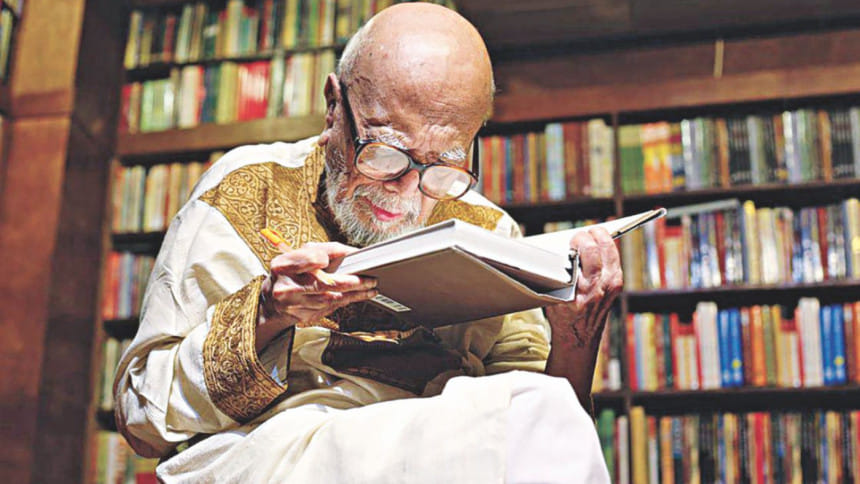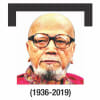Remembering Al Mahmud's literary contribution

Al Mahmud was one of the most iconic poets in Bengali literature. In his early youth, he entered Dhaka city with a broken suitcase. The same man, through his masterful poetry, took us to a wonderful journey of imagery. Conscious readers of poetry have watched his magic over time, and were repeatedly spellbound. Al Mahmud is one of those poets who have contributed a lot to the progress of modern Bengali poetry.
Lok Lokantor, Kaler Kolos, Sonali Kabin, Mayabi Porda Duley Otho, Adristabadider Rannabanna, Bokhtiarer Ghora, Arabya Rojonir Rajhas and Doel o Doyita are some of his remarkable poetic works. However, the book which has been accepted by critics and connoisseurs as a classic piece is his Sonali Kabin.
Al Mahmud entered into the realm of poetry following the styles of Jasimuddin and Jibanananda Das. Jasimuddin uniquely depicted the picture of rustic Bengal in his poems. People of the agro-based Bengali Muslim society first saw their identity in literature through Jasimuddin's work. Their sorrow, sufferings, poverty, hunger and love, depicted vividly in his poems, attracted not only the Bengali society, but also the entire world. Unlike Jasimuddin, Jibanananda Das depicted the scenic beauty of Bangladesh. Another difference between them is that Jasimuddin followed the language of rustic people in poetry, whereas Jibanananda Das was very sophisticated in using poetic dictions. Walking the paths of his two great forerunners, Al Mahmud had to struggle a lot to find his own identity. He finally reached his goal with the release of his third book -- Sonali Kabin.
Al Mahmud instigated the core of poetic appeal through wielding colloquial words from local dialects, creating a new trend. For Lok Lokantor and Kaler Kolos, Al Mahmud won the Bangla Academy Award in 1968.The initiation of relevant subjects, frequent use of colloquial dialects and outspoken approach to poetry fetched him international acclaim.
His literary creation, Upomohadesh, is considered to be one of the finest novels on the Liberation War. With the passing away of the major Bengali poet Mir Abdus Shukur Al Mahmud, en epoch of Bengali poetry ceases to go further.
Al Mahmud, a Language Movement veteran, was a freedom fighter and was deeply involved with several literary and progressive movements. His writings also expose our socio-political issues providing the readers with an authentic perception of the real Bangladesh. His popular poem Nolok is based on this theme.
He would regularly write for Chatushkon, Chaturanga, Mayukh and Krittibash. Several poems by Mahmud were published in Kobita, edited by Buddhadev Basu, creating uproar amidst the contemporary literary giants. In Dhaka, he started writing regularly for Sikandar Abu Zafar's Shamokal.
His other literary creations include Dinjapon, Ditiyo Bhangon, Pankourir Rokto, Nodir Bhitorer Nodi, and Prem Prokritir Droho Ar Prarthonar Kobita amongst others.
Born in Brahmanbaria, Al Mahmud was honoured with many awards including the Ekushey Padak, Kabi Jasimuddin Award, Joy Bangla Award, Humayun Kabir Memorial Award and Jibonananda Memorial Award in recognition of his contribution to Bengali literature.

 For all latest news, follow The Daily Star's Google News channel.
For all latest news, follow The Daily Star's Google News channel. 




Comments